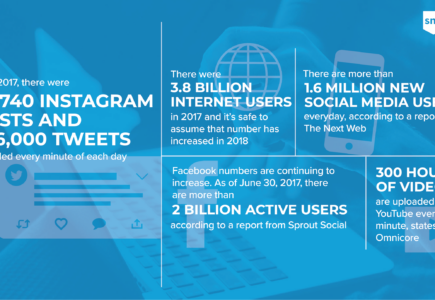Why Waiting to Discover Online Evidence Could End up Costing you the Case
If you’re preparing for litigation and expect you’ll need defensible online evidence, the time to act is now—before the evidence disappears. Every hour you wait gives the opposing party more time to hide, delete, or restrict access to critical information that could make or break your case. Don’t wait to discover online evidence because it could cost you.
Why Waiting to Discover Online Evidence is Risky
Even a small delay can jeopardize your case—and your client. In fact, we’ve seen clients request reports after litigation has already begun, only to realize they’re too late. Why?
Because once litigation starts, opposing counsel may advise their client to remove online content, including social media posts, photos, comments, and more. And yes—this is allowed. It’s not considered destruction of evidence if it happens before formal preservation obligations take effect.
At SMI Aware, we’ve seen it firsthand: we’ve captured critical social media evidence in reports, only to find the same content deleted within 24 hours.
Once it’s gone, it’s often gone for good. While archived web pages and third-party sources may sometimes fill gaps, social media evidence is harder to recover—and in many cases, it’s simply lost.
Evidence Preservation: An Ounce of Prevention
You’ve heard the saying: “An ounce of prevention is worth a pound of cure.” The same holds true for collecting online evidence. Acting early not only protects your case—it may save you from costly outcomes down the line.
In one case, our social media report uncovered photos and posts proving the plaintiff, who claimed debilitating injuries, was actively participating in activities they’d sworn were impossible. Their defense witnesses, also featured in these posts, were discredited.
The result? Our work saved the client from paying a $1 million settlement on a false claim.
How to Use Social Media Reporting in Litigation
The key is consistency. We recommend incorporating regular, systematic social media reporting into your litigation process. Submitting report requests early ensures our analysts have the best chance to locate, compile, and archive the evidence you need—before it’s altered or removed.
We can’t guarantee what evidence exists—but we can guarantee it’s harder (or impossible) to find if you wait too long.
What We Need to Get Started
To submit a report request, provide as much detail as possible:
-
Full legal name (and known nicknames)
-
Current and past addresses
-
Date of birth or age range
-
Known phone numbers and email addresses
-
Education and employment history
It’s also helpful to tell us why you need the report. For example, if you’re defending against a personal injury claim, let us know—so our analysts can prioritize searches for activities that contradict those claims.
When a Deep Report Is Critical
A Deep Report, like in the case study above, can be essential in litigation such as:
Employment Litigation
-
Employer defense
-
Wrongful termination
-
Workers’ compensation
-
Fraud
-
Defamation
Intellectual Property
-
Patent research
-
Copyright infringement
Due Diligence
-
Mergers and acquisitions
-
Corporate client profiles
-
Opposition records
Trial Support
-
Jury selection
-
Jury monitoring
Class Action Suits
-
Client intake
In all these situations, timing is everything. The sooner you submit a detailed request, the more likely we can secure the evidence you need—before it’s gone.
Because if you’re failing to plan, you’re planning to fail. And in litigation, that failure could cost you millions.
Preserving online evidence quickly and accurately is critical. Don’t wait to discover online evidence. Contact us to learn more about our suite of services, including our rush requests.




